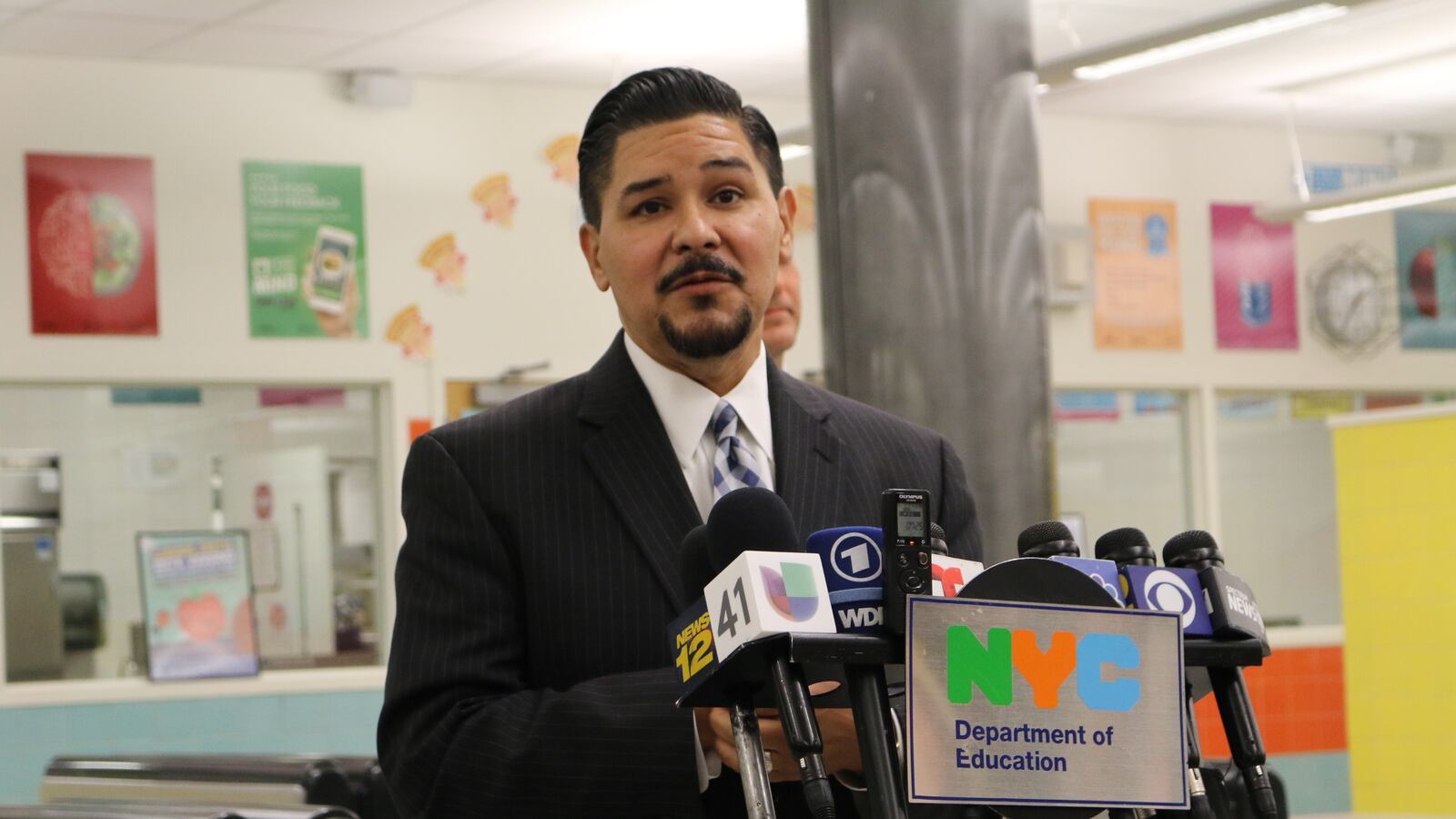A major change in New York City education leadership did not substantially shake the confidence of teachers, students, and parents in the city’s schools.
But nearly a third of teachers say they haven’t yet made up their mind about whether Chancellor Richard Carranza is doing a good job after arriving last Spring, according to the most recent city education department survey, released Thursday.
The annual survey — the second-largest after the U.S. census, the city has said — asks teachers, students, and parents for their opinions about their own schools and the school system as a whole. The city then uses the answers to identify school-level trends that might require intervention.
The 2019 survey results are notable mostly for their stability. Parents still say they most want more extracurricular activities and lower class sizes; students still say they feel safe at school; and teachers — or 83% of them, at least — still say they look forward to coming to work every day.
And parents and teachers alike still say they are mostly satisfied with the city schools chief after his first full year in the role. Carranza became chancellor in April 2018, so last year’s survey asked for feedback on the tail end of Carmen Fariña’s tenure.
Three quarters of parents expressed satisfaction with Carranza, and just over half of teachers did, too. (In contrast, Fariña, who was widely known in New York City before becoming chancellor, posted a 60% approval rating among educators after her first year.)
But nearly a third of teachers said they “don’t know” whether Carranza — who came to the city from Houston — is doing a good job.
Since the survey was conducted this winter and spring, Carranza has come under fire for his focus on racial justice issues, as well as for requiring all department employees to undergo anti-bias training. It’s not clear how widely city educators hold those concerns, and some staff members have been forceful in their support of Carranza.
Paula L. White, the executive director of the advocacy group Educators for Excellence in New York, said that many teachers are “encouraged” by Carranza’s approach — which has also included a long-awaited reform of the discipline code towards less punitive measures and more emotional supports for students. But in such a large, slow-moving system, they’re still waiting to see how his priorities trickle down to the classroom.
“What we need now is implementation, and I think teachers will have a much clearer view where he stands as a chancellor after the implementation occurs,” she said. “And if it doesn’t occur soon, then I would say dissatisfaction will probably rise.”
Want to see results from your school? Find them here.
Christina Veiga contributed to this report.

